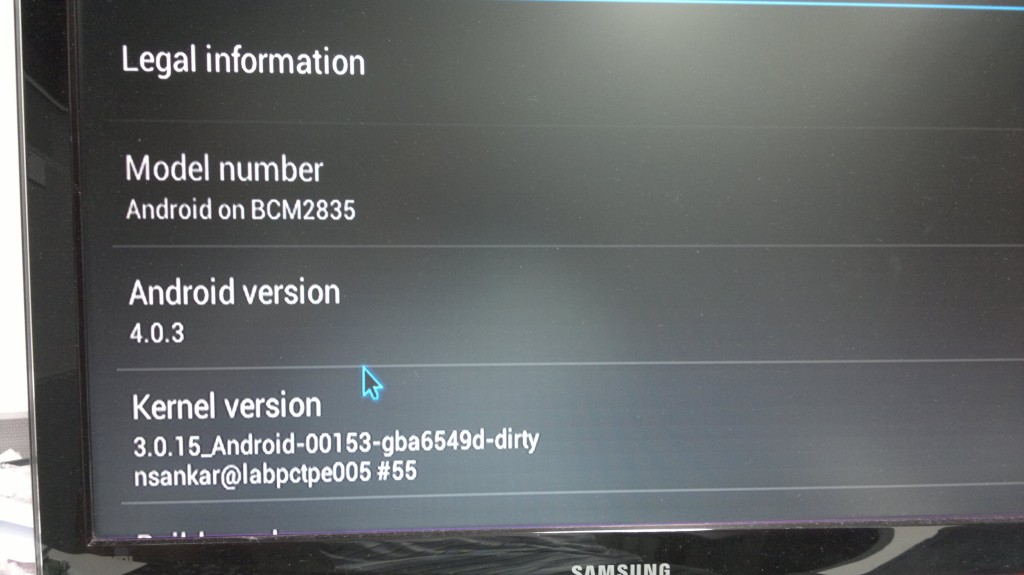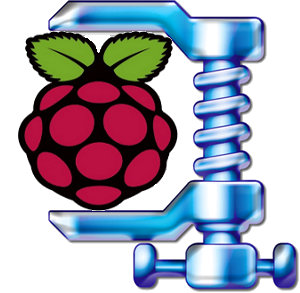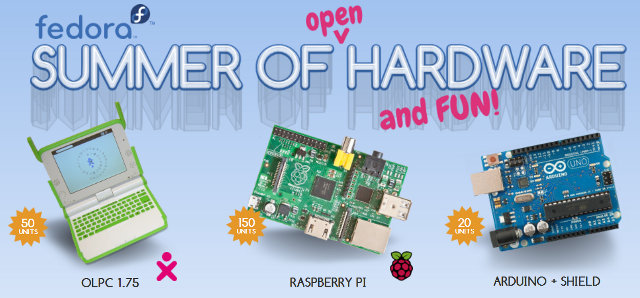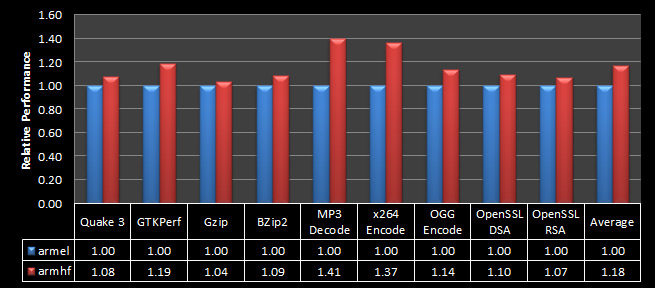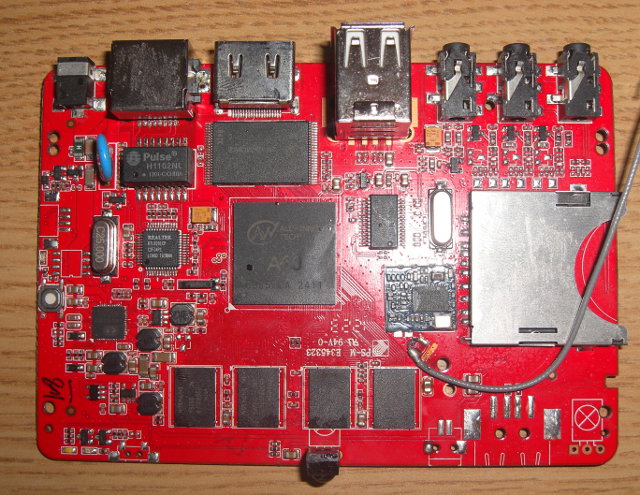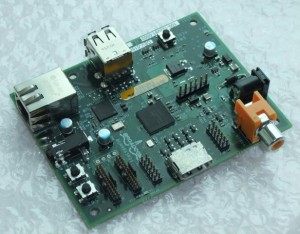Eben of the Raspberry Foundation announced that a developer (Naren) has been working on a port of Android 4.0 for the Raspberry Pi, and the port already appears to be a an advanced stage with hardware-accelerated graphics and video working smoothly. The only major issue is the lack of support for AudioFlinger. The demo below shows Android 4.0 running in the Pi without audio as it’s not implemented yet. The UI is relatively smooth, and video playback and YouTube video streaming work pretty well. This is quite impressive considering the Raspberry Pi has less than 256 MB of memory available to the system, and I suppose they must have made some compromises to make this work. Moreover, I would expect that many applications won’t run properly due to the ARMv6 processor and low system memory. The source code and binary release are not available yet, as this port uses a […]
84 MB Minimal Raspbian ARMHF Image for Raspberry Pi
Many embedded systems applications do not require a desktop environment or graphical interface on the screen (e.g. server), and you may want to only install the files you really need on the SD card either to reserve as much space as possible for data and/or your program or to reduce costs. After searching for a minimal image based on Raspbian ARMHF distribution for the Raspberry, I could only find Linux Systems minimal image based on the Alpha version of the Raspbian Wheezy. Their compressed image is 109 MB in size, has a custom kernel, sshd and ntpd are enabled, but the wireless tools were deleted, and at the time the swap was located in another partition instead of a file inside the rootfs. The uncompress rootfs is about 414 MB (as reported by df -h when mounted as a loop device). I decided to prepare a minimal image myself based […]
Fedora To Give Away Raspberry Pis, OLPC 1.75 Laptops and Arduinos to Developers
Fedora will give away over 200 open hardware devices as part of its Summer of Hardware initiative to Fedora contributors. 150 Raspberry Pi boards, 50 OLPC 1.75 laptops and 20 Arduino boards and shields will be freely distributed to randomly selected candidates. In order to qualify, you must have a Fedora Project account, have signed the Fedora Project Contributor Agreement, be a member of at least one non-CLA / FPCA Fedora Group and be resident in one of the following country/region: Australia (excluding the states of New South Wales and the Australian Capital Territory), Belgium, Canada (excluding Quebec), Germany, India, Japan, the Netherlands, New Zealand, Singapore, South Korea, Spain, Sweden, United Kingdom, or the United States (excluding New York and Florida). To apply, you need to fill an application form by the 15th of August where you select your preferred device and enter your full name, Fedora account information and […]
Raspberry Pi Releases Raspbian SD Card Image Based on Debian Wheezy ARMHF
The Raspberry Pi foundation announced the very first stable release of the Raspbian distribution, which is based on Debian 7.0 “Wheezy” armhf rootfs in order to take advantage of the FPU in Broadcom BCM2835. This distribution offers up to 40% performance improvement on several tasks, and for some specific tasks such as MP3 encoding is can boost the speed by nearly 6 times thanks to hard-float support. It is now the recommended distribution for the Raspberry Pi, runs LXDE environment, and comes with Midori browser, development tools and example source as per the previous Debian distros. omxplayer by gimli (XBMC developer) is also pre-installed in the image, and will allow you to play videos using hardware acceleration. You can download Raspbian via: Bittorrent – 2012-07-15-wheezy-raspbian.zip.torrent HTTP – 2012-07-15-wheezy-raspbian.zip The default credentials are pi / raspberry. Adam Armstrong has run some benchmarks to compare Raspbian (armhf) with the previous Raspberry Pi […]
HackBerry: AllWinner A10 Development Board with 1GB RAM
After the Raspberry Pi, the Gooseberry, here comes the HackBerry. This is another AllWinner board similar to the Gooseberry, but which Ethernet, a full sized USB ports, an IR sensor and 1GB RAM. Here are the board specifications : SoC – AllWinner A10 System Memory – 1 GB RAM Storage – 4GB Flash + SDHC slot USB – 2x USB 2.0 ports Connectivity: 10/100Mbit Ethernet Wifi – 802.11 b/g/n Video Output – 1 x HDMI + 1x Composite Audio I/O – Headphone + microphone IR sensor The board runs Android 4.0, but since it’s an AllWinner device, you can run what you want. In a way it’s similar to the Mele A1000, except it has more memory, but lacks SATA, VGA output and has one less USB port. I can’t see the serial port pins on the PCB picture either. There is pricing information or availability yet, as Jasbir only […]
Android Transporter Enables WiFi Display Mirroring (similar to Miracast) of Android Devices
E.S.R.Labs is a German embedded software company mainly working for the automotive industry. But this time, they’ve started to work for the consumer market with Android Transformer, a software solution that can mirror an Android display to another Android device display via Wi-Fi in a similar fashion to what WiFi Miracast will do. Eventually, the company plan to make Android Transporter compatible with Wi-Fi Miracast, but in the meantime they rolled out their own solution by taking advantage of H.264 hardware encoders and decoders on Galaxy Nexus S and the Raspberry Pi. If they use standard APIs, I assume any hardware running Android that with H.264 hardware encode/decode should support their platform. I hope it will be work on (or be ported to) CX-01 mini PC which can be bought as low as $40 inc. shipping. It would make an even cheaper hardware than the Raspberry Pi (Up to 33% […]
List of 39 Low Cost Linux Friendly Boards and Products
Dmitry (omgfire), one of my awesome readers, compiled a great tabular list of Linux friendly boards and products that sells for less than $300 US (usually less than $200). This list includes technical details such as the processor, GPU, memory, NAND flash, connectivity, ports, supported Linux distributions… as well as availability and pricing information. There are currently 39 Linux devices in total. The vast majority are ARM based boards, but he also included 2 x86 products by VIA, but those are relatively pricey ($265 and up). Here’s a summary list with SoCs used, links to blog posts and product pages (if available), as well as price information. Raspberry Pi Model B – Broadcom BCM2835 (ARM11) – Blog post (That’s my first post about the R-Pi last year, and the board is much different now) – Product page – Price: $35 + shipping Rikomagic MK802 – Allwiner A10 (Cortex A8) – […]
Monkey, an Open Source High Performance Embedded Web Server
Some time ago, I mentioned 5 web servers (mathopd, thttpd, busybox httpd, boa and lighttpd) suitable for embedded systems (including those featuring no MMU processors) and low end machines. I’ve recently come across Monkey web server, a lightweight open source Web Server for Linux (2.6.29 or greater), which has been designed with focus in embedded devices. Monkey is currently supported on ARM, x86 and x64, although a quick analysis of the source code shows it forks, so it won’t be supported on processors that do not feature a memory management unit (MMU) without modifications. Monkey supports the following features: HTTP/1.1 compliant Virtual Hosts Asynchronous networking model (event-driven) Indented configuration Plugins Support C API Interface Other features through base plugins: SSL Security Log writter Directory Listing Shell: Command line The developers have benchmarked Monkey against busybox httpd and nginx on a now well-know ARMv6 platform: the Raspberry Pi. They used Siege […]


